A day hardly passes in Iran without the Islamic Republic subjecting Baha'i citizens to persecution and harassment. Or is there any such day? For 44 years, Iranian Baha’is, the country’s largest non-Muslim religious minority, have struggled under a campaign of systematic persecution and discrimination affecting their daily lives, limiting or destroying their educational and employment opportunities, subjecting them to arbitrary detentions, extortionate bails, and long jail terms, and exposing them to constant hate speech and incitements to violence, all just because of their religious beliefs. The past several months have also seen an intensifying crackdown on the Baha’i community.
All this raises a question: is the Iranian government committing genocide against the Baha’is?
In the years after the 1979 Islamic Revolution, 200 Iranian Baha’is were executed for their beliefs. Thousands more were imprisoned, their properties confiscated, and they were dismissed from government jobs. Baha’is are also banned from studying at the country’s universities.
The first time the word “genocide” was used in connection with human rights violations against Iranian Baha’is was by a United Nations (UN) special rapporteur about six years after the 1979 revolution. Most of the executions had occurred by then – though the systematic nature of the ongoing campaign against the community had not yet become as clear as it is today.
In a report to the UN Human Rights Commission on July 2, 1985, the special rapporteur on the prevention and punishment of the crime of genocide, Benjamin Whitaker, used the term genocide in connection with the treatment of Baha’is by the Islamic Republic. And though his work produced an official UN report the subject was not pursued.
In the early days after the revolution, Ayatollah Ruhollah Khomeini, founder of the Islamic Republic, said the Baha’i religion was a “political party” created by the United States and United Kingdom “to destroy Islam” and called the Baha’is “heretic spies” who must be annihilated.
Khomeini also called the Baha’is members of a “deviant, infidel and unclean sect.” He added: “We have no doubt that the Baha’is are spies and conspirators.” Khomeini’s fatwas against the Bahai’s are proof of the Islamic Republic’s criminal intent and policies towards Iranian Baha’is.
The Islamic punishment for apostasy from Islam is death and the Islamic Revolutionary Court promised to implement the "orders of Islam" and to fulfill Khomeini's wishes. The Shiite clerics, who were designated by him as “Sharia judges”, quickly started handing out this punishment from the first days after Khomeini's return from exile in France to rule in Tehran.
Starting on November 11, 1979, just months after the revolution, seven members of the National Spiritual Assembly of the Baha’is of Iran, an elected body that oversaw the wellbeing of the Iranian Baha’i community, were disappeared. Only years later was it learned that they had been tried in a sham trial by a revolutionary court on charges of espionage, had been sentenced to death, and had been executed by firing squad.
In his book In Search of a Better World, the Iranian-Canadian international human rights lawyer Payam Akhavan writes that these Baha’is were family friends of his parents. The degraded video that emerged years after their execution showed what transpired in this final part of their lives. “The prosecutor, overflowing with anger, was weaving false conspiracy theories without offering a shred of evidence,” Akhavan writes.
And on June 18, 1983, in an abhorrent act, the Islamic Republic hanged 10 Baha’i women, aged from 17 to 57, who had been arrested the previous fall in Shiraz. One of them was Mona Mahmoudnejad, a 17-year-old girl whose father had been executed earlier in the same field. Two others among the 10 were a mother and daughter who were forced to die together.
Ruhi Jahanpour, another Baha’i woman arrested at the same time but who was not sent to the gallows, says that, after the 10 women were detained, prison authorites "tied them to something like a bed and hit the soles of their feet with a whip, at intervals that made them feel [even] more pain, and said 'If you reject your religion, we shall release you.'" The Sharia judge had given these women a choice: "Islam – or death."
Since the revolution in 1979, the execution of Baha’is, their forced disappearances, their murder and mutilations, their arbitrary arrests, their physical and mental torture, the seizure and confiscation of their properties, the show trials and imprisonments on bogus charges, has been a constant practice and policy of the Islamic Republic.
The confiscation of Baha’i-owned assets and properties has been almost a daily affair. These properties are by no means low-value or small. For example, one is now the Artistic Division of the Islamic Development Organization and the other one, in Shahrak-e Mahallati of Tehran, is where the commanders of the Islamic Revolutionary Guard Corps (IRGC) have their homes.
Iranian Baha’is say that the confiscation of their properties has picked up speed again in recent years. A case in point is the confiscation of the home of a Baha’i citizen in the northern province of Mazandaran by order of a court that based its verdict on fatwas by Shia “sources of emulation,” which is a term used for clerics whose rulings are followed by others, and who have ruled that Baha’is cannot “legitimately” own properties.
Properties confiscated from Baha’is are transferred to the Executive Headquarters of the Imam's Directive, also known as Setad, a parastatal organization administered under the direct control of Supreme Leader Ali Khamenei. The body is tasked with holding and managing all assets confiscated from anyone deemed by Iran’s criminal law to have forfeited their properties and it is one of the wealthiest organizations under Khamenei’s direct control.
The Process of Committing the Crime
The systematic 44-year-old policy of the Islamic Republic regarding the Baha'is has created a situation that roughly corresponds to the legal definition of genocide. It has probably reached the threshold of genocide and has even crossed it.
The crime of genocide is committed through a process; it does not happen overnight. It is the result of a series of criminal acts and practices over time.
Resolution 96 of the UN General Assembly, of December 11, 1946, titled “The Crime of Genocide,” describes genocide as the “denial of the right of existence of entire human groups, as homicide is the denial of the right to live of individual human beings.”
The same year, the International Court of Justice in The Hague announced that the prohibition of genocide contained in the Convention on the Prevention and Punishment of the Crime of Genocide is an intrinsic rule of international law and is considered an obligation that goes beyond treaties. In other words: whether a state is a member of this convention or not, it is committed to it, by definition. The Islamic Republic of Iran nevertheless also has a covenantal commitment to the Convention against Genocide because the government of the Shah, before he was deposed in the 1979 revolution, joined the convention long ago.
Four Groups and Five Behaviors
Victims of the crime of genocide fall into four specific groups: ethnic, national, religious and racial. This means that, for example, a political group cannot be considered a victim of genocide based on its legal definition. What is relevant in genocide is the annihilation of a group or a community as a unit and even as a whole.
The meaning of killing, within the concept of genocide, is to destroy the identity of one of these specific groups. The crime of genocide is identified by the discriminatory nature of the act by the perpetrator. It is a crime against a religious, ethnic, racial or national difference that the perpetrator seeks to erase by the physical elimination of the members of a group.
Behaviors that constitute the crime of genocide fall into five groups: (1) killing the members of the group; (2) inflicting physical harm that can gradually lead to the loss of life or impose permanent and extensive suffering on a person’s life; (3) imposing conditions with the intent of annihilating the target group, such as starvation or cutting access to water, or depriving the members of the group of the means of survival such as seizing and confiscating their residences and businesses which ultimately makes it impossible for them to live that an environment; (4) creating conditions that prevent birth and childbearing or lead to the sterilization of people, and make the birth of a new generation of that religious, ethnic, racial or national group impossible; (5) the forced removal of the children of the target group.
Therefore, genocide does not just mean the killing or the intentional murder of the members of the four groups mentioned. Genocide can take several forms, as described, if it will lead to the extermination of all or part of an ethnic, racial, religious or national group. In most such cases this does not occur all at once but is pursued over time. A power seeking to eliminate a group begins with an intent and can then take years to achieve its goal.
By this analysis, there can be little doubt that, since the 1979 revolution, Iranian Baha'is have been, at various times, and by some measures continue to be, victims of the four forms of genocidal patterns described in this overview. This group is the victim of a structural system of discrimination implemented by the Islamic Republic – which not only does not prevent such actions but gives the perpetrators of harassment and offense against Baha’is political cover and judicial immunity.
Iran’s courts do not protect Baha'is against murder, beatings and other kinds of violence, and they deny them the right to compensation. In the judicial system of the Islamic Republic, citizens who commit violence and crimes against the Baha’is are not prosecuted, because it considers the victims to be “infidels” and “unclean” apostates who have no rights. Christians, Jews and Zoroastrians in Iran are recognized by the country’s constitution as religious minorities and, in theory at least, they have some rights. This system has made Iran’s Baha’is the impeding victims of a potential genocide.
Genocide is a crime under international law – a system of law that holds both individuals and governments accountable. Individuals and governments can both therefore be prosecuted for committing genocide.
Based on international law, and also Iran’s commitment to the Convention Against Genocide, the Islamic Republic must be held accountable for the environment of systematic persecution it has created for the Baha’is over the past 44 years. Iran’s government is, in principle, meant to be committed to preventing this crime and is obliged to criminalize genocide and to legislate punishments for its perpetrators in Iran’s domestic laws. But there is no sign that this government has ever had any intention of doing so: and Iranian laws do not address the crime of genocide in any form.
The Islamic Republic’s inaction does not, however, annul its international responsibilities. Nor does it grant immunity from prosecution to Iranian officials and its government.
According to international practice, any member state of the Convention Against Genocide can file a complaint against the government of the Islamic Republic with the International Court of Justice. And any third-party state that invokes "universal jurisdiction" in prosecuting the perpetrators of major international crimes – such as genocide – can prosecute suspects of any genocide of Baha’is in Iran if the alleged perpetrators enter that third country.
After 44 years of subjecting the Baha’is to death, suffering and bloodshed, and depriving them of living a normal life in Iran, it seems that holding the Islamic Republic to account is long overdue.
visit the accountability section
In this section of Iran Wire, you can contact the officials and launch your campaign for various problems












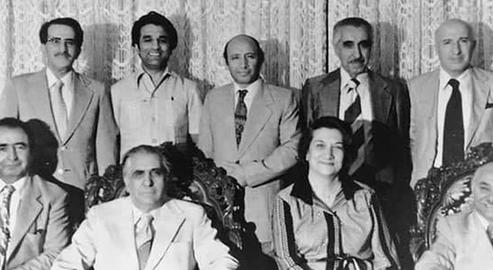



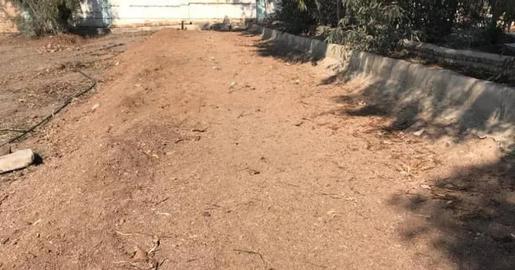
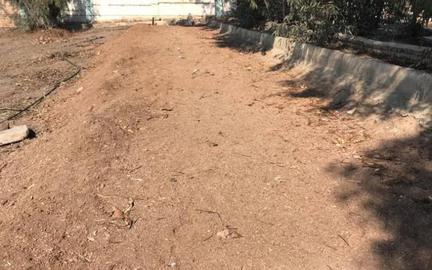

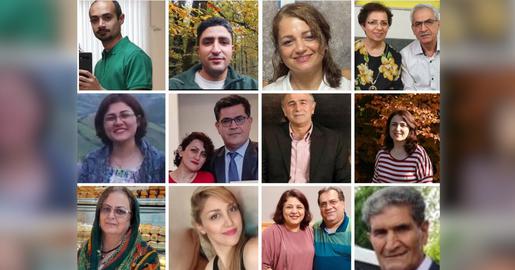

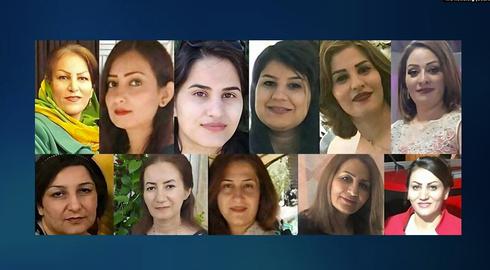




comments